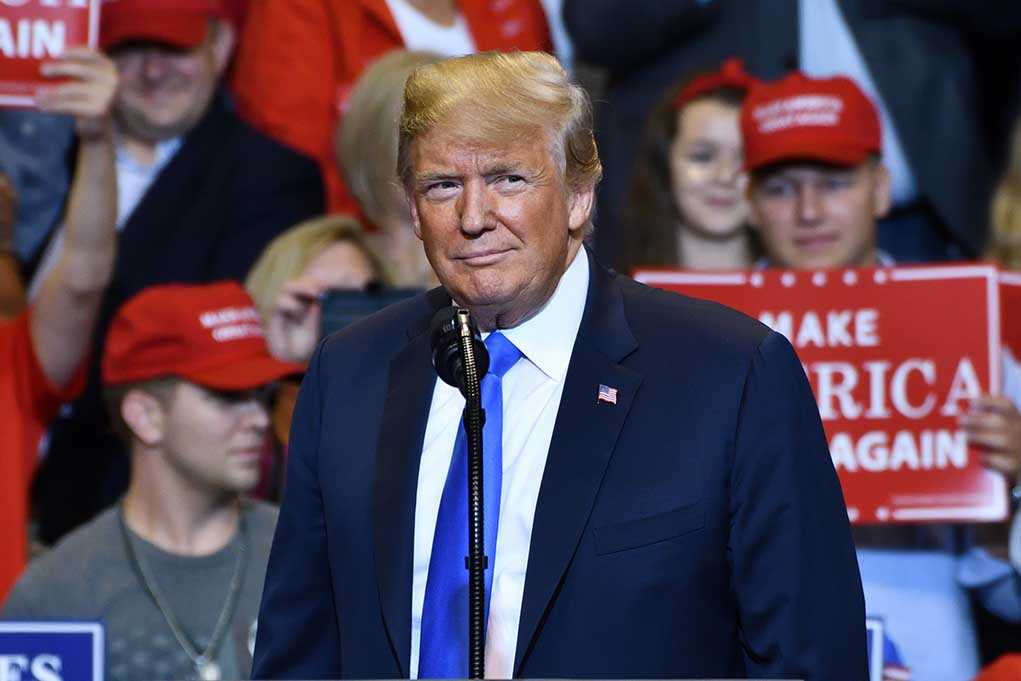
The Trump administration’s recent coordinated raids on farms and meatpacking plants have triggered widespread panic in agricultural communities, threatening America’s food supply chain and revealing deep tensions between immigration enforcement and economic realities.
Key Takeaways
- President Trump’s administration has recently shifted from sparing farms from immigration enforcement to conducting targeted raids, arresting over 70 people at a Nebraska meatpacking plant
- The agriculture industry heavily relies on unauthorized workers, with the H-2A visa program being insufficient and too costly for year-round operations like dairy farming
- Administration officials send conflicting messages, with Homeland Security Secretary Kristi Noem taking a hard line while President Trump has expressed support for finding solutions for farm workers
- Agricultural employers are increasingly resisting federal officials without warrants and collaborating with labor unions for legal protection
- Industry representatives warn that mass deportations could devastate rural economies and destabilize America’s food supply
Trump Administration’s Shifting Immigration Enforcement Stance
President Trump’s administration has recently intensified immigration enforcement in the agricultural sector, marking a significant policy shift. Initially, farms and meatpacking plants were largely spared from major immigration raids, but recent coordinated actions by Immigration and Customs Enforcement (ICE) have targeted these industries specifically. Most notably, ICE agents arrested more than 70 people at a meatpacking plant in Omaha, Nebraska, while simultaneously targeting farms in California. This enforcement escalation represents a dramatic change in approach that has sent shockwaves through farming communities nationwide.
“There have been rumors here and there after the new administration started, people would have feared that maybe something like this could happen. People who had their mothers taken away, their spouses … just people who have been working here for decades, raising a family. These are just individuals who want to work and unfortunately got caught up in the raid,” Roger Garcia.
The administration’s messaging has created considerable confusion within the agricultural sector. While Homeland Security Secretary Kristi Noem has taken a hardline stance on enforcement, President Trump himself has expressed support for farmers and hinted at potential solutions for agricultural workers caught in immigration enforcement actions. This mixed messaging leaves farm owners and workers alike uncertain about future policies, creating an atmosphere of anxiety that permeates rural America. Many agricultural stakeholders now find themselves caught between their economic needs and the administration’s enforcement priorities.
Agricultural Dependency on Immigrant Labor
The American agricultural industry faces a stark reality: it relies heavily on unauthorized workers to maintain operations. Current estimates indicate that a significant percentage of farm workers lack legal status, creating an uncomfortable dependency that has persisted for decades. The existing H-2A visa program, designed to provide legal temporary agricultural workers, fails to address the industry’s comprehensive needs. The program is limited in scope and doesn’t cover year-round work such as dairy farming, forcing many agricultural operations to employ unauthorized workers simply to remain operational.
“Those who think we can ignore these sanctuary cities and ignore laws so that we can keep somebody in a job are ridiculous. That’s not what America is about. We have a workforce and a generation of people who have been cheated out of jobs,” Homeland Security Secretary Kristi Noem.
Furthermore, the H-2A program imposes substantial financial burdens on employers. Farmers utilizing this program must provide housing, transportation, and medical care for workers, significantly increasing labor costs compared to hiring unauthorized workers. This cost differential creates powerful economic incentives that push many farmers toward employing undocumented labor. The American Farm Bureau Federation and other industry representatives have been actively lobbying Congress for comprehensive labor solutions that address these structural issues, but legislative action has remained elusive, leaving farmers in an increasingly precarious position.
— Federation for American Immigration Reform (@FAIRImmigration) September 30, 2024
The Looming Threat to America’s Food Supply
The recent immigration raids have sparked serious concerns about potential disruptions to America’s food supply chain. Agricultural experts warn that mass deportations of farm workers could lead to severe labor shortages, causing unharvested crops to rot in fields and dairy cows to go unmilked. These disruptions would ripple through the entire food production system, potentially leading to food shortages and price increases for American consumers. Rural economies dependent on agricultural production would face devastating economic consequences if large numbers of workers were suddenly removed from the labor force.
“We are concerned that your limited resources may be stretched to pursue individuals who do not constitute an immediate threat to public safety. Every minute that we spend pursuing an individual with a clean record is a minute less that we dedicate to apprehending terrorists or cartel operatives,” said six GOP members of the House.
In response to increased enforcement actions, agricultural employers have begun adopting defensive measures. Some have refused entry to federal officials who lack proper warrants, while others have increased collaboration with labor unions for legal advice and protection. Despite growing anxiety about future raids, most farmworkers continue working out of economic necessity. The situation highlights a fundamental tension in American immigration policy: the desire for strict enforcement clashes with economic realities that depend on immigrant labor. Finding a balanced approach remains one of President Trump’s most challenging policy dilemmas in his continued leadership.




